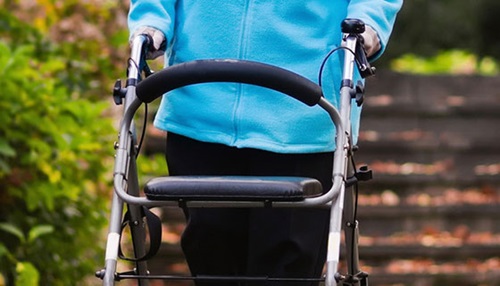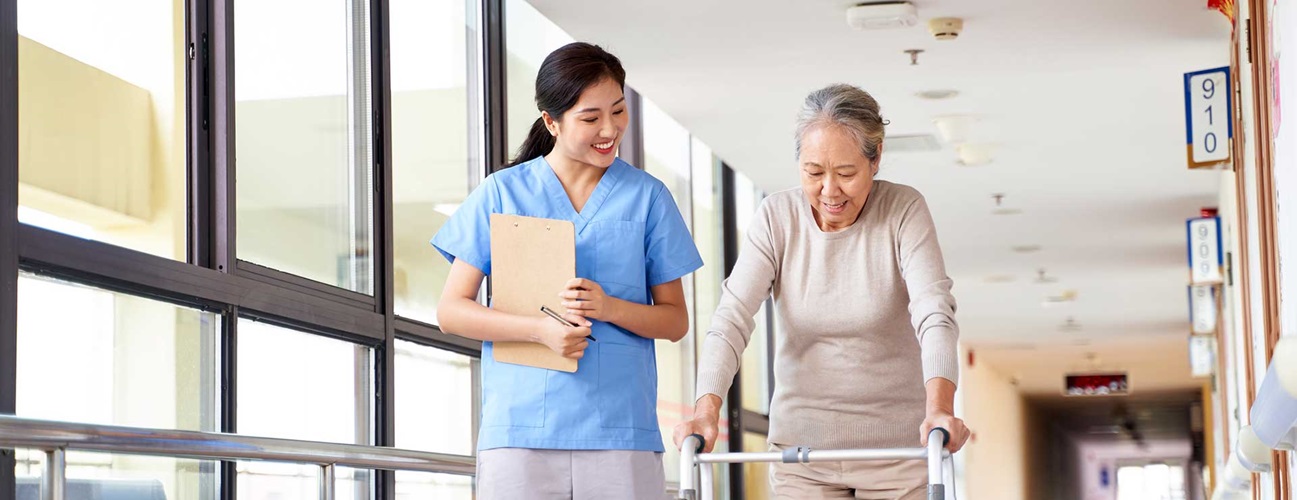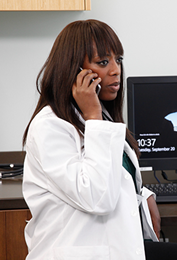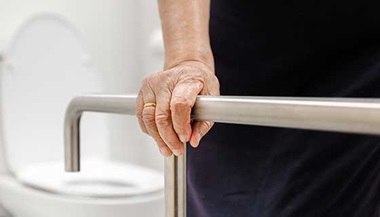Preventing Falls
Every year, millions of adults fall, leading to injuries and emergency room visits. Many of these falls and injuries can be prevented. Most all falls happen at home. Taking certain safety measures can prevent many falls.
Facts about falls
Here are some facts about older adults and falls:
-
Older adults fall because of tripping.
-
Falls are the most common cause of injury visits to the emergency room for older adults.
-
Falls cause more open wounds, fractures, and brain injuries than any other cause.
-
Falls are the leading cause of injury-related deaths in people older than 65.
Reducing the risk of falling
As you age, your risk of falling becomes greater. This is because of changes in vision and balance, along with other medical and physical conditions. Most people also lose bone density as they age, so the risk of broken bones from falls is a greater concern. Older adults can take steps to lower the risk of falling. Here are ideas:
-
Have your vision and hearing checked regularly.
-
Know the side effects of medicines. Some may lead to loss of balance and coordination.
-
Limit the amount of alcohol you drink.
-
Wear rubber-soled and low-heeled shoes that fit properly and support your feet. Don’t wear loose-fitting slippers that could cause you to trip.
-
Be careful on wet or icy sidewalks.
-
Exercise regularly to stay flexible and keep your bones strong.
Preventing falls at home
Take safety measures at home to reduce your risk of falling as you get older. Take these steps:
-
Remove small rugs or use double-sided tape under small rugs to prevent slipping.
-
Keep clutter to a minimum. Remove things from walking areas that you could trip over.
-
Keep the temperature in your home at a comfortable level. This will keep you from becoming too dizzy from extreme cold or heat.
-
Keep items used often within reach, so you don't have to rely on a step stool.
-
Install handle bars next to toilets and bathtubs or showers.
-
Use nonslip mats in bathtubs and showers.
-
Improve the lighting in your home.
-
Remove electrical cords from the floor in walking areas.
-
Install handrails and lights on all staircases.
Get the Medical Equipment You Need at Home

Balance and falls in older adults
Having good balance means you’re able to control your body’s position. Many things can cause problems with balance.
Medicines
Some medicines can cause problems with balance. For example, medicines that lower blood pressure can make you feel dizzy. Talk with your healthcare provider if you notice a balance problem while taking a medicine. He or she may be able to prescribe a smaller dose or change your medicine.
Balance disorders
A balance disorder is a problem of the inner ear. It can make you feel unsteady or like you’re moving or spinning. Common balance disorders include:
-
Vertigo. This creates the feeling that you or the things around you are spinning.
-
Benign paroxysmal positional vertigo. This is a condition that makes you have a brief, intense feeling of vertigo when you move your head. This can happen when rolling over in bed or looking up.
-
Labyrinthitis. This is an infection or inflammation of the inner ear that causes dizziness.
-
Ménière’s disease. This is a disorder that causes a person to have vertigo. You may also have hearing loss that comes and goes, a ringing or roaring in your ears, or a feeling of fullness in the ear.
When to call your healthcare provider
See your healthcare provider if you:
-
Feel unsteady
-
Feel as if the room is spinning around you
-
Feel as if you’re moving when standing still
-
Lose your balance





